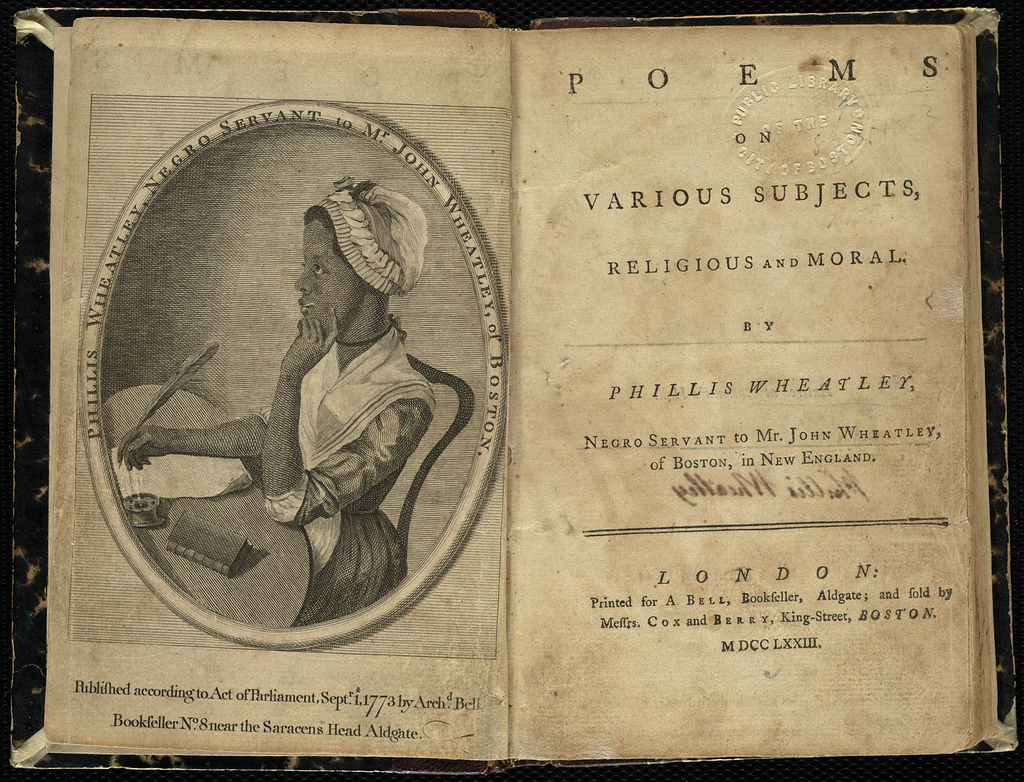
Taken from Africa when she was only about seven years old, Phillis Wheatley was a slave. She was also the first published African-American female and one of the best-known poets of her time.
The family who owned her taught her to read and write, allowed her an education that at the time was unusual for a woman let alone one who was a slave, and encouraged her poetry when they noticed her talent. Wheatley wrote her first published poem at around age 13. However, some years later many white colonists found it difficult to believe that an African slave was capable of writing such poetry, and Wheatley had to defend her authorship of her poetry in court in 1772. When her first book was published in 1773 — Poems on Various Subjects, Religious and Moral — it included a preface in which a group of Boston luminaries asserted that she had indeed written the poems included in the book.
Eventually freed from slavery, in 1778 Wheatley married John Peters, who kept a grocery store but whose business was not successful, and the couple struggled financially. They had three children together, all of whom died young. Because of the war and the poor economy, Wheatley was unable to find a publisher for her second volume of poems, a manuscript that has since disappeared. Phillis Wheatley, who had once been internationally celebrated and considered “the most famous African on the face of the earth,” died alone in a boarding house at the age of 31.
Recent scholarship shows that Wheatley wrote perhaps 145 poems, although many of them have been lost over time. Wheatley’s poems were mostly written in the elegiac poetry style, focusing on moral and religious subjects. In a biography from the Poetry Foundation, Sondra A. O’Neale says,
In the past ten years, Wheatley scholars have uncovered poems, letters, and more facts about her life and her association with eighteenth-century black abolitionists. They have also charted her notable use of classicism and have explicated the sociological intent of her biblical allusions. All this research and interpretation has proven Wheatley’s disdain for the institution of slavery and her use of art to undermine its practice. (Read the full biography here).
Critics consider Phillis Wheatley’s work fundamental to African-American literature. She is honored as the first African-American woman to publish a book, (only the third American woman of any color to do so), and the first to make a living from her writing.